Is a long-awaited contraception revolution on the horizon? No, this is a not a drill. Researchers working on early trials of a new male pillhave found that the once-daily tablet appears to be safe and effective.
If you can feel a creeping sense of déjà vu washing over you, that is because we have been here before. In recent years the subject of a male contraceptive pill has reared its head almost annually, getting the hopes of women everywhere up only for them to be quickly dashed.
Various guises of the male pill as well as contraceptive injections and gels have been in development for some time. The journey to develop male contraceptionhas followed long and difficult path, previous trials have been stopped because the male subjects experienced unwanted side effects such as mood swings, bad skin and weight gain.
This new pill is known as dimethandrolone undecanoate. It’s similar to most female contraceptive pills currently on the market in that it contains a combination of synthetic hormones: an androgen (like testosterone) and a progestin (synthetic progesterone).
DMAU has been tested successfully in a small study at the University of Washington. It works by targeting receptors in the brain which trigger sperm production and brings a man’s sperm count low enough to avoid pregnancy. Researchers are pleased that the side effects which cropped up in previous trials – such as liver damage and low sex drive – were broadly absent from this trial.
One other problem that has blighted the development of a male pill is that men have been found to ‘clear’ the hormones from the medication much faster than women. This means that the effects are lessened. However, because this particular pill also contains a long-chain fatty acid (that’s the undecanoate bit), the drug’s passage through the male body has been slowed down meaning that it is effective if taken just once a day.
**READ MORE: The Debrief investigates - Hormonal Contraception And Mental Health **
Debrief Mad About The Pill Stats
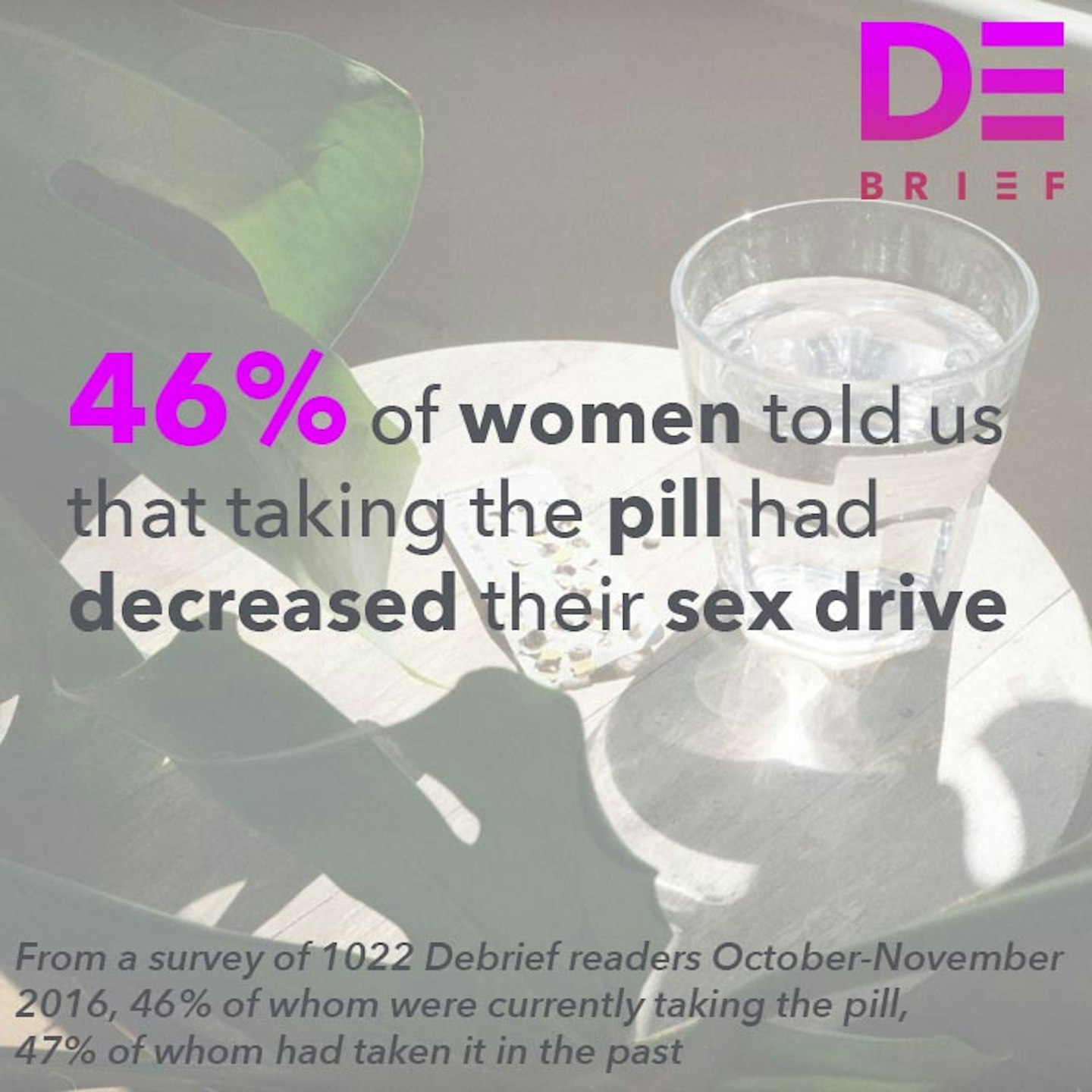 1 of 9
1 of 9Debrief Mad About The Pill Stats
 2 of 9
2 of 9Debrief Mad About The Pill Stats
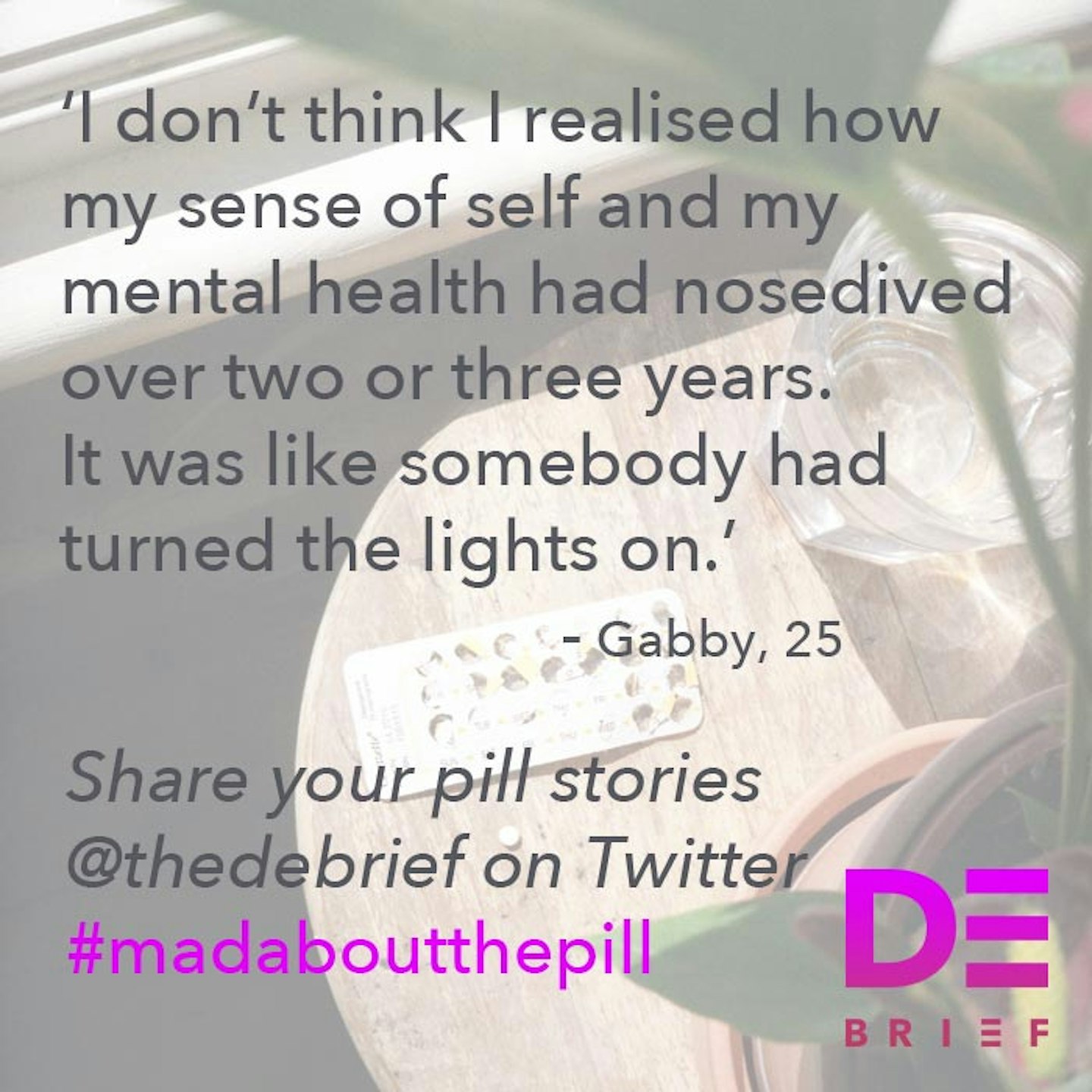 3 of 9
3 of 9Debrief Mad About The Pill Stats
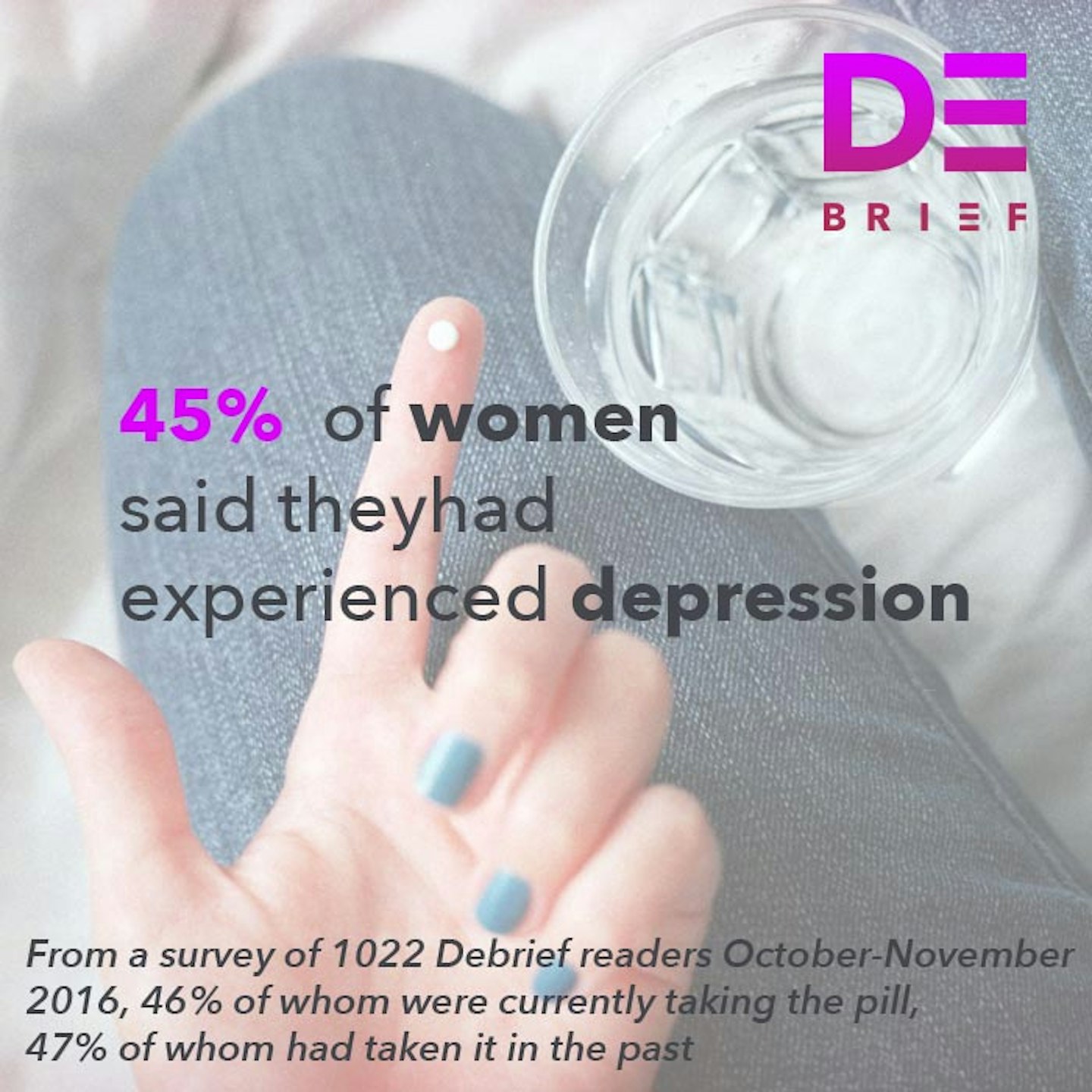 4 of 9
4 of 9Debrief Mad About The Pill Stats
 5 of 9
5 of 9Debrief Mad About The Pill Stats
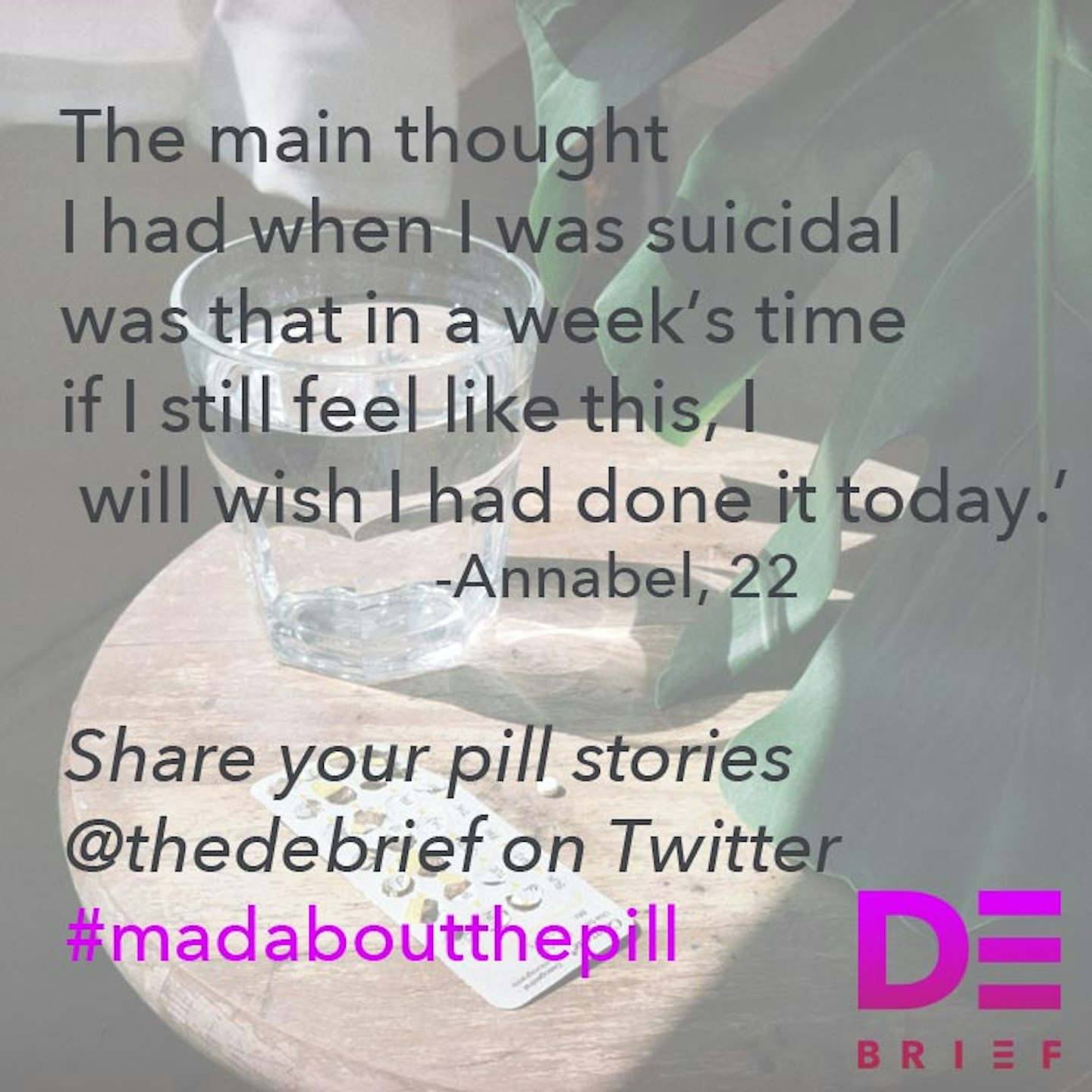 6 of 9
6 of 9Debrief Mad About The Pill Stats
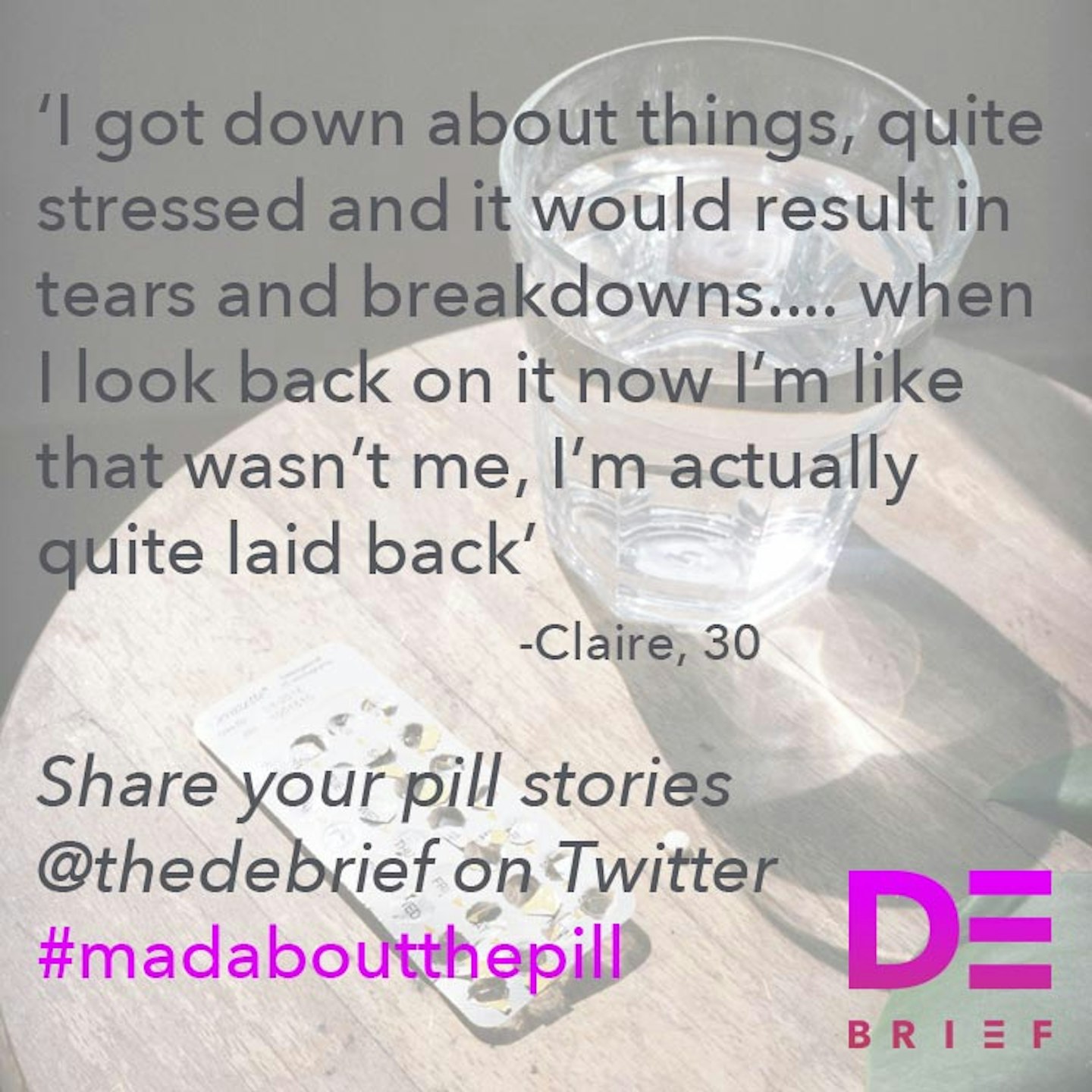 7 of 9
7 of 9Debrief Mad About The Pill Stats
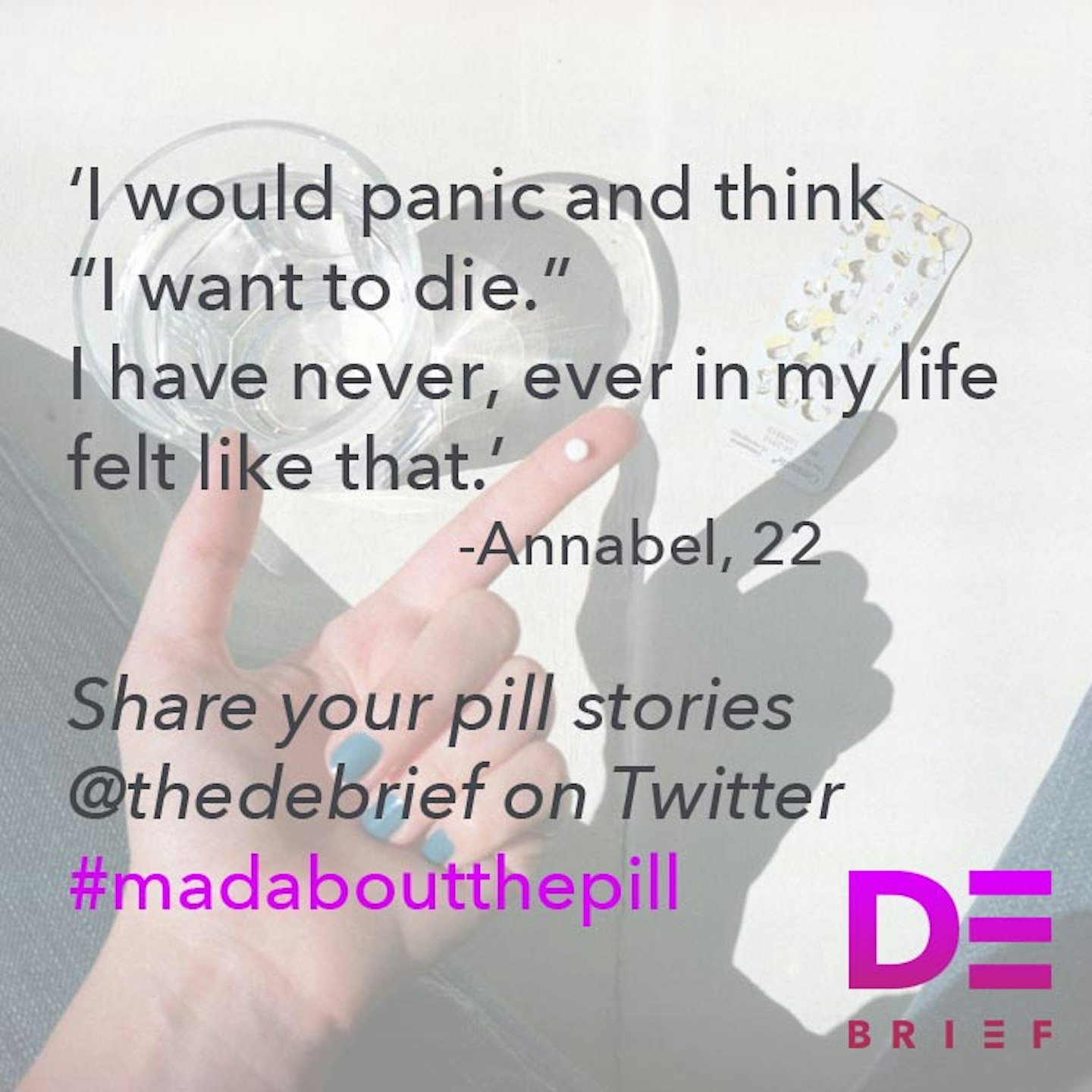 8 of 9
8 of 9Debrief Mad About The Pill Stats
 9 of 9
9 of 9Debrief Mad About The Pill Stats
The trial included 100 healthy men between the ages of 18 and 50. 83 of them completed the study and most of them reported no fatigue or loss of libido which can be side effects of low testosterone.
However, the trial revealed that DMAU is not completely without side effects. All of the men taking it, as opposed to the placebo, reported weight gain and a drop in their good cholesterol levels. Professor Stephanie Page, the senior investigator on the study, said that this was relatively mild and not cause for major concern. ‘Despite having low levels of circulating testosterone, very few subjects reported symptoms consistent with testosterone deficiency or excess,’, she said as she presented the results of her DMAU trial yesterday at the Endocrine Society’s annual conference.
For a long time, the concept of male contraception has been dismissed because ‘men wouldn’t’ or ‘couldn’t be trusted to’ take it. Back in 2013, Professor John Guillbaud told me that had been in development for some time but that it was being slowed by the fact that funding was difficult to secure because of such pervasive social attitudes.
However, polls have shown that around half of men have sad they would take a male pill if it became available. Nineteen percent stated that they definitely would not use a male pill, whilst 31 per cent were unsure. With this in mind, there’s every reason to think that if a safe and reasonably side effect free male pill became available it be received positively.
We’re not there yet but this trial signals that we are one step closer to finally seeing a male pill become available. This would be the next step in the sexual revolution that was aided by the introduction of the contraception pill back in the 1960s.
The female pill has now been around for several decades, this means that we have more and more data about its side effects. While it works well for many women, information about the potential impact it has on women’s mental health is being discussed more and more. As The Debrief noted in our Mad About The Pill investigation, a Danish study published in November 2016 linked women who use hormonal contraceptives with higher rates of depression. Researchers at the University of Copenhagen, lead by Professor Lidegaard, followed more than a million women between the ages of 15 and 34 over a fifteen year period, and found that those taking oral contraceptives were 23% more likely to take antidepressants. A more recent study from the same research team has found that there is a link between oral contraceptives and an increased risk of suicide.
For too long not getting pregnant has been the sole burden of heterosexual women who wish to have sex for pleasure, despite the fact that it takes two to tango. This trial is encouraging and suggests that, soon, we may have something better, something closer to sexual equality - a male pill that we never have to take, remember to pick up a prescription for or deal with the side effects of. Just imagine what else we could do with our time….
Page told the conference that more studies are underway to ascertain whether DMAU could work long-term.
Follow Vicky on Twitter @Victoria_Spratt
This article originally appeared on The Debrief.
